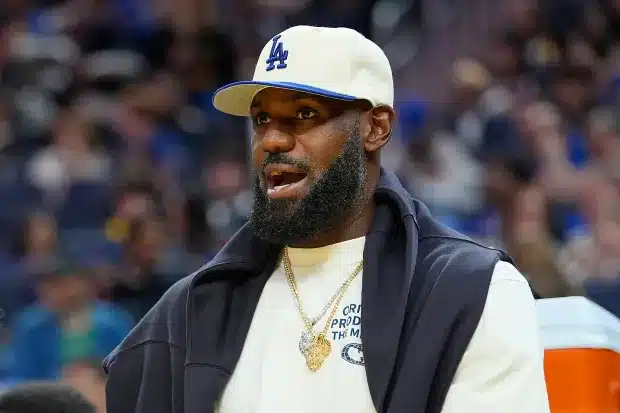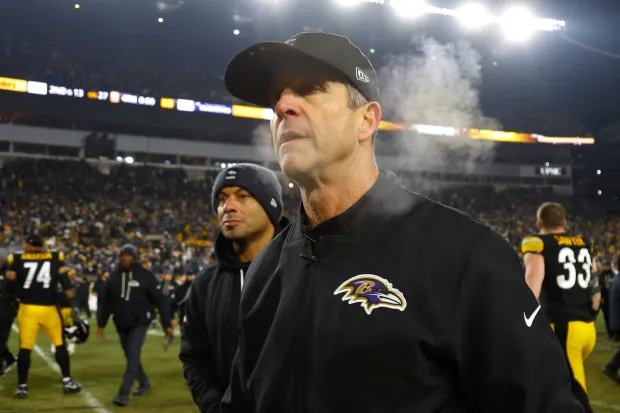LOS ANGELES — NBA Hall of Famer Charles Barkley has never been one to hold back his opinions, and this week he directed them at one of the game’s biggest icons: LeBron James. The outspoken TNT analyst suggested that the Los Angeles Lakers superstar should consider walking away from the game rather than endure a painful, drawn-out decline.
James, now in his 23rd NBA season, has yet to play a single minute for the Lakers in the 2025–26 campaign as he continues to deal with a right sciatica injury. The four-time NBA champion and all-time leading scorer remains sidelined indefinitely, with the team announcing that he will be re-evaluated in the coming weeks.
As the Lakers continue to navigate life without their franchise cornerstone, Barkley — who himself experienced a difficult end to his career — shared an emotional and candid message during an appearance on The Jim Rome Show.
“I hope he leaves sooner than later,” Barkley said. “I hate to see great players out there struggling. I really struggled my last year, probably my last two years.”
Barkley’s comments echo a familiar sentiment in professional sports: the fine line between greatness and decline. For athletes who have defined generations, stepping away is often the hardest decision of all.
A Legacy Few Can Match
LeBron James, 40, has nothing left to prove. He is a four-time NBA champion, four-time MVP, and the NBA’s all-time leading scorer — surpassing Kareem Abdul-Jabbar’s mark in 2023. Over two decades, James has redefined longevity, playing at an elite level deep into his late 30s.
Last season, James averaged 25.4 points, 7.9 rebounds, and 7.1 assists while leading the Lakers to the Western Conference semifinals before falling to the Denver Nuggets. Despite the loss, his play reaffirmed that even in his 22nd season, he remained one of the league’s most productive stars.
But this year’s absence has reignited questions about durability and longevity. The sciatica issue, which impacts the lower back and can cause radiating leg pain, has limited James’ ability to practice and move laterally — a worrying sign for an athlete who built his career on explosiveness, power, and precision.
Barkley’s Perspective Carries Weight
Charles Barkley’s remarks weren’t made to criticize but to empathize. The 1993 NBA MVP retired in 2000 after suffering a torn quadriceps tendon in his final season with the Houston Rockets. He understands what it feels like to battle the body’s limits while trying to protect a legacy built on dominance.
“You don’t want to be remembered for limping through the finish line,” Barkley said. “LeBron’s one of the greatest ever — and he’s got nothing left to prove. I just don’t want to see him in pain or trying to force something when his body’s telling him it’s time.”
Barkley’s sentiment is shared by some within the league. Behind closed doors, several NBA executives and former players have quietly wondered if James’ injury might mark the beginning of the end for one of basketball’s most remarkable careers.
The Lakers’ Balancing Act
For the Lakers, LeBron’s absence has created uncertainty. Head coach Darvin Ham has leaned heavily on Anthony Davis and newly acquired guard Austin Reaves, but the team has struggled to find consistency without their leader.
Despite James’ desire to continue playing — and his well-documented dream of sharing an NBA court with his son, Bronny James, currently a rookie with the Cleveland Cavaliers — time and health may be dictating a different story.
“LeBron’s a competitor,” Ham said earlier this week. “He wants to be out there. But we’re not rushing anything. We want him healthy, first and foremost.”
A Crossroads for a Legend
LeBron James has always defied expectations — from prodigy to champion, from All-Star to elder statesman. Whether he returns this season or decides to heed Barkley’s advice, his place in history is secure.
For now, the basketball world waits. The Lakers’ season hangs in the balance, and LeBron’s future — as both a player and global ambassador for the sport — remains uncertain.
Still, Barkley’s words cut to the emotional truth of all great athletes’ journeys: even legends eventually face the one opponent they can’t beat — time.




